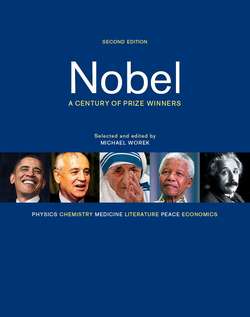Читать книгу Nobel - Michael Worek - Страница 40
На сайте Литреса книга снята с продажи.
ОглавлениеAlexis Carrel (1873–1944)
1912 Physiology or Medicine
In recognition of his work on vascular suture and the transplantation of blood vessels and organs.
Alexis Carrel was first educated at home and later attended Saint Joseph College in Sainte-Foy-lès-Lyon, his hometown. His father, a businessman, died prematurely while Carrel was still young.
In 1889 he received his Bachelor of Letters at the University of Lyon and a year later another degree in the sciences. In 1900 he took his doctorate, at which time he dedicated himself to medical work, including experimental surgery, at the Lyon Hospital and to teaching at the local university.
Carrel left for the United States in 1904 and took a position in the Department of Physiology at the University of Chicago. Eight years later he became a full member of the Rockefeller Institute for Medical Research in New York. Here he carried out the majority of the research that would earn him the 1912 Nobel Prize in Physiology or Medicine in recognition of his work on the vascular suture and transplanting blood vessels and organs. Other achievements of his included developing new methods of preventing postoperative hemorrhages and thromboses.
A year later, in 1913, Carrel married Anne-Marie-Laure Gourlez de La Motte. A devout Catholic, he complemented his work in medicine by working as a philosopher, writer and biologist throughout his life. During World War I he served as a major in the French Army Medical Corps and developed new treatments for the war wounded. When World War II broke out, Carrel returned to France as a member of a special mission for the French Ministry of Health. He held this position for a year and then served as director of the Carrel Foundation for the Study of Human Problems established by the Vichy Government.
Carrel received various distinctions from countries around the world, including Spain, Russia, Sweden, Holland, Vatican City, France and the United States. It was from America, his adopted country, that many say he developed his ingenuity, energy and determination. He died in Paris in 1944.
